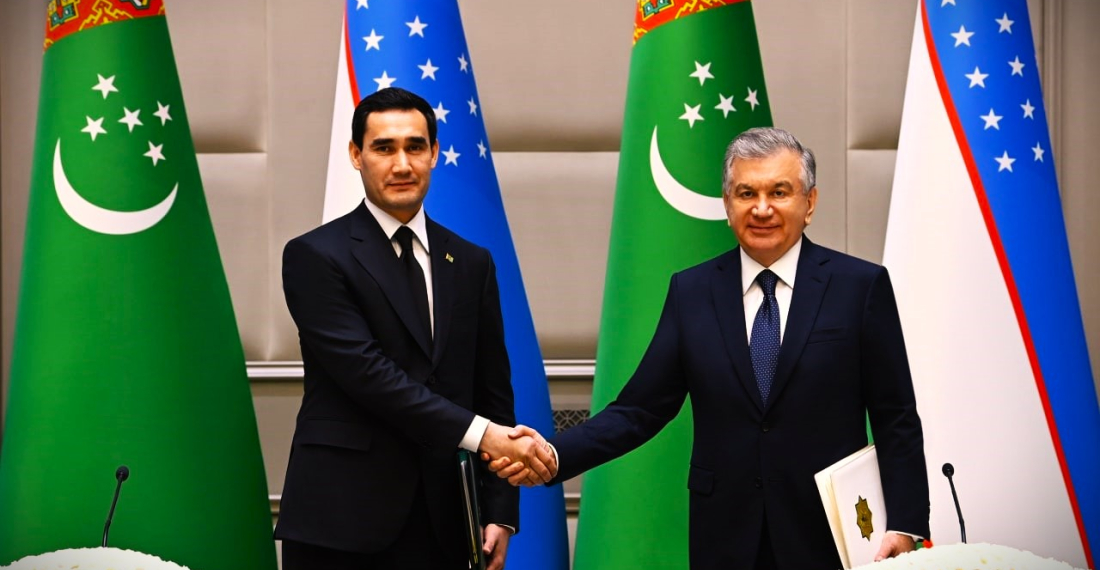Uzbekistan's foreign trade turnover as a whole exceeded $50bn in 2022, an increase of 18.6% or $7.8bn compared to 2021.
Russia remains Uzbekistan's largest foreign trading partner, constituting $9.2bn - or just under 20% - of Uzbekistan's foreign trade in 2022.
Neighbours Turkmenistan, who for many years have been one of the most economically isolated countries in the world, has also seen its trade with Uzbekistan increase.
The trade turnover between Turkmenistan and Uzbekistan in 2022 amounted to $926.3m, reported Trend news agency with reference to the data of the State Statistics Committee of Uzbekistan. This represents an increase in trade turnover between the countries of 2.7% compared to 2021.
Trade between Ashgabat and Tashkent has dramatically increased in the last two years. In 2021, the trade turnover between the countries amounted to $881.9m, which is 61% more than in 2020.
Mirroring wider regional changes, Turkmenistan appears to be abandoning decades-long economic isolation and has seen its trade with other countries in the region dramatically increase in the past year. For example, the total trade volume between Turkmenistan and Azerbaijan reached $305.5m from January through to September 2022, a more than 600% increase from $48.6m in the same period of 2021, according to statistics from Azerbaijan’s Customs Committee.
Similarly, according to China Customs statistics, bilateral trade between Turkmenistan and China between January and August 2022 - underpinned by Ashgabat's export of natural gas to Beijing - reached $6.9 billion, an increase of 52.4% percent year on year.
source: commonspace.eu with agencies
photo: ANKASAM







